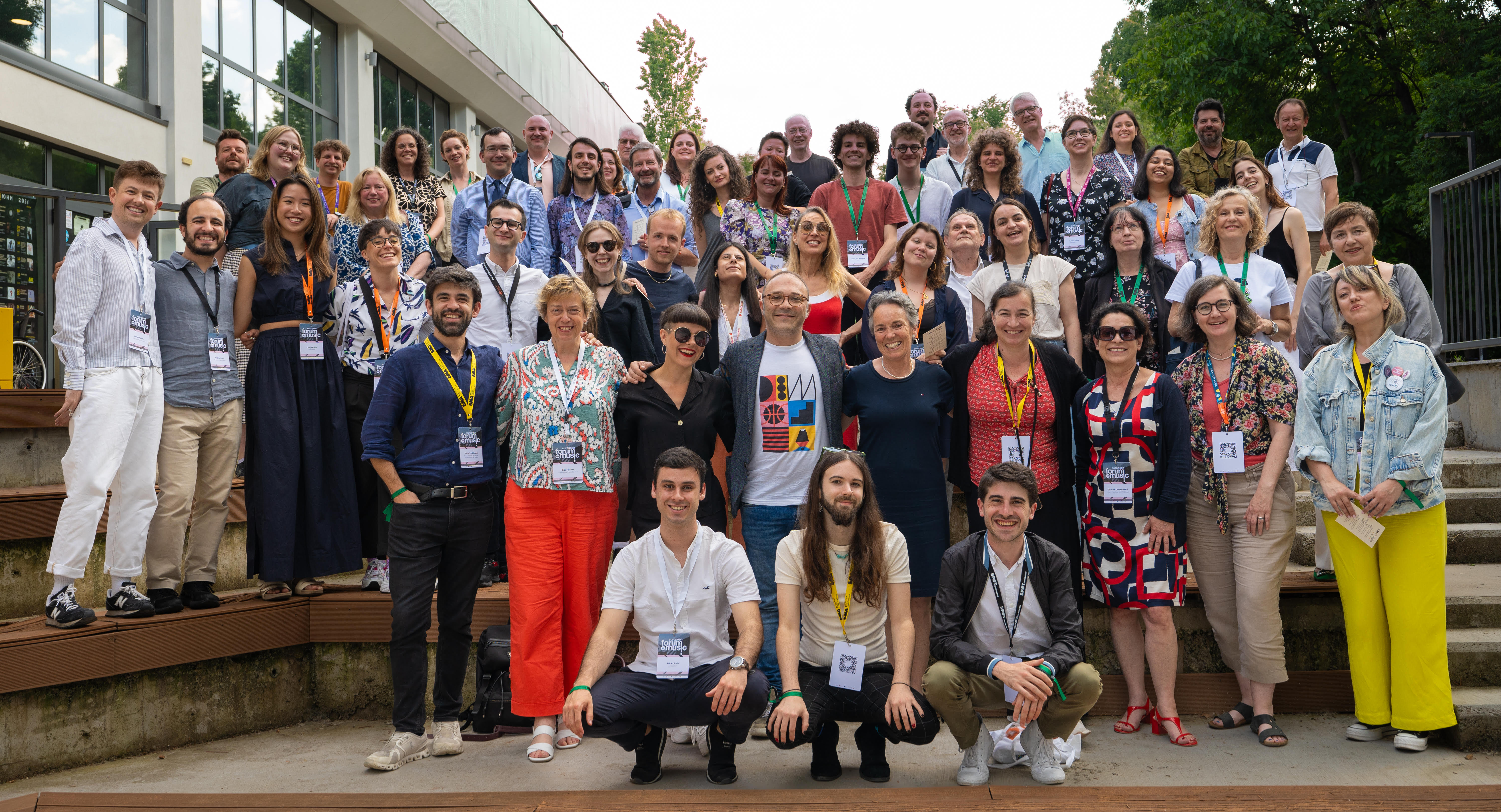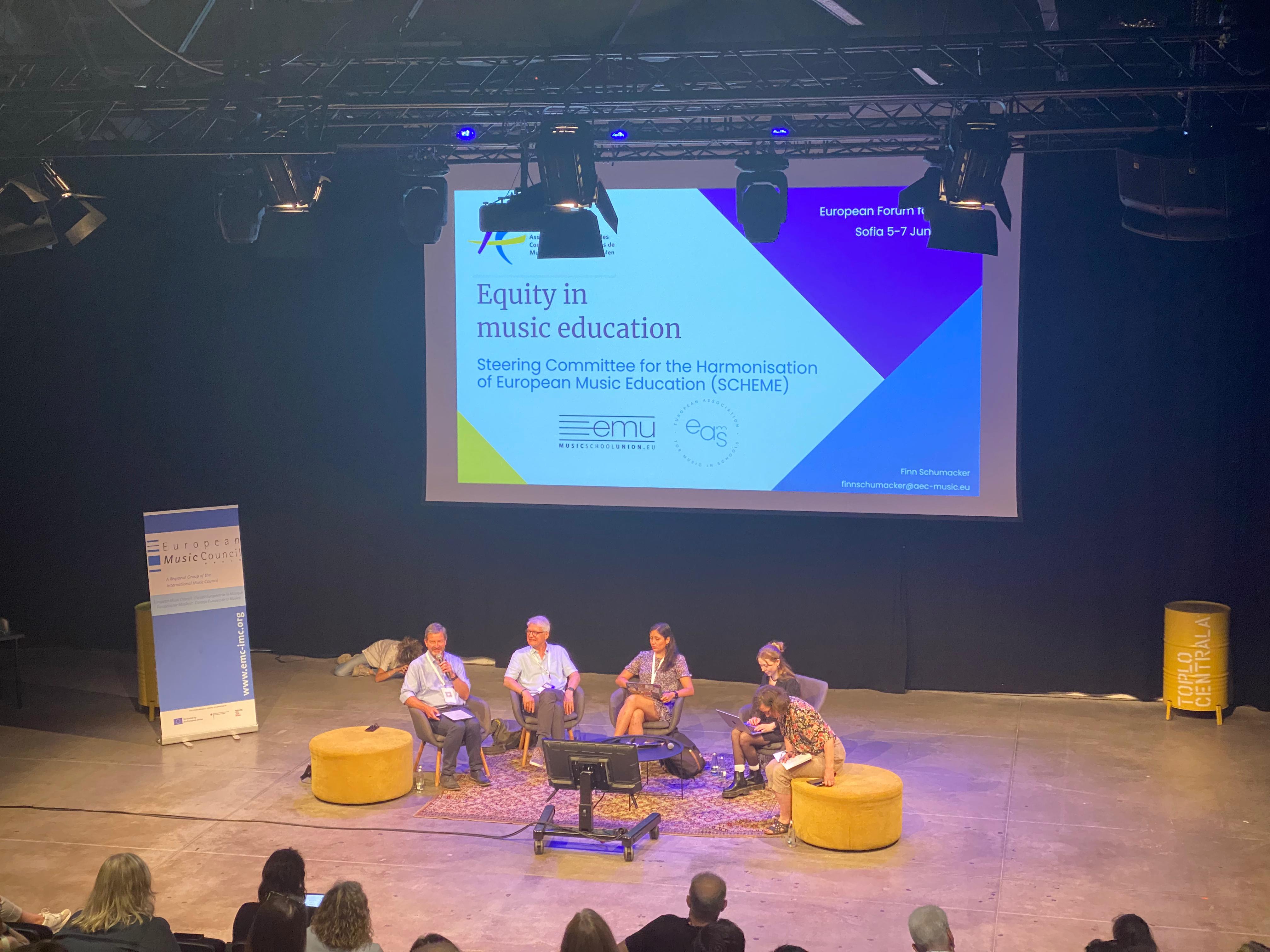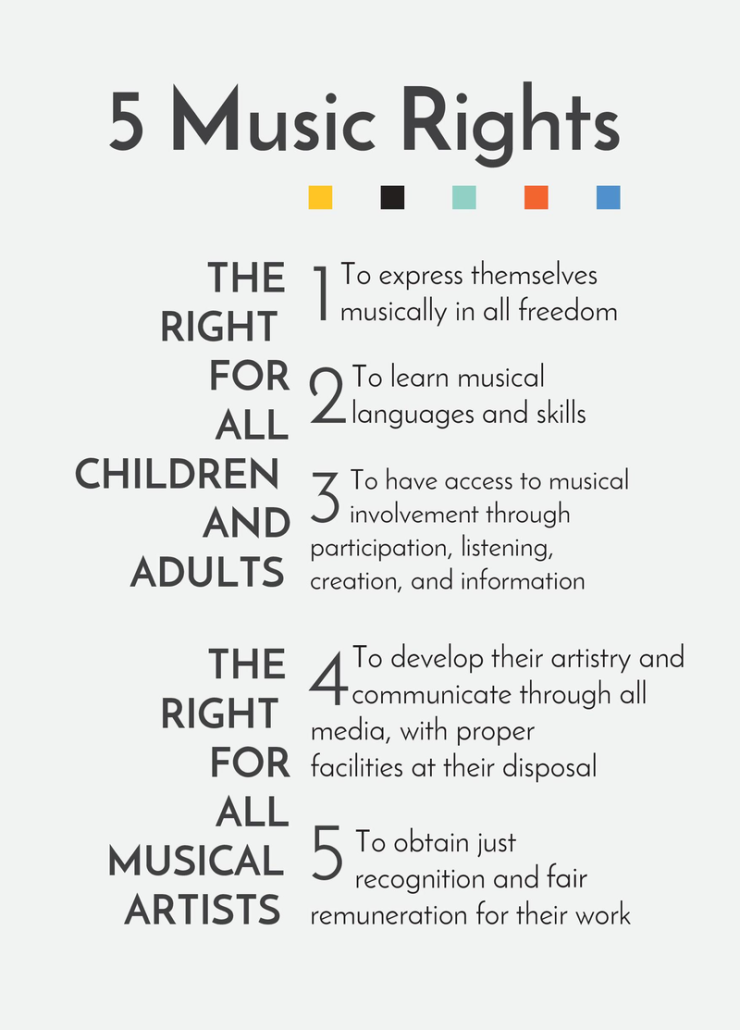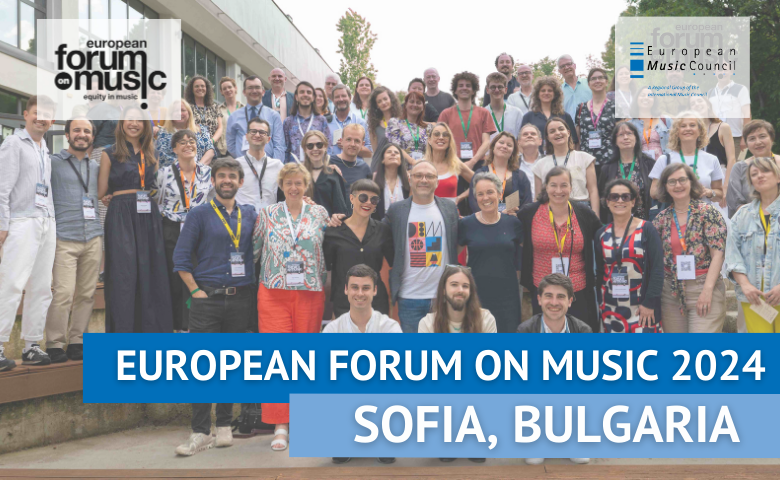Toplocentrala Centre for Contemporary Arts in Sofia opened premises for the 12th edition of the European Forum for Music on 5-7 June 2024 with the theme Equity in Music organised by the European Music Council.
Alfonso Guerra, coordinator of the AEC Diversity, Inclusion and Gender Equality (DIGE) Working Group and AEC Executive Director Finn Schumacker attended the event, participating in discussions around Equity in music streaming, in live music, the geographical perspective and of course in music education.

Representing the Steering Committee for Harmonisation of European Music Education, consisting of EAS (European Association for Music in Schools) and EMU (European Music School Union) Finn Schumacker was invited to speak about the challenges in music education for children and young people throughout Europe, where he observes a declining political priority in relation to music education in primary schools.
The consequences are, among other things, that qualified music education is often reserved for the best-off families, and we thus miss out on many musically gifted children who never get the opportunity to realise their artistic potential. At the same time, the primary school as an institution misses out on the beneficial effects of music when it comes to strengthening children’s social skills, communities, concentration and improving health and well-being.

A panel consisting of researcher Martha Lomeli, sound designer and musician Mimi Harmer, and EMC board member Niels Græsholm, the latter sharing insights and a historical perspective from Denmark, discussed the great variation in conditions around Europe and tried to point to solutions to improve the situation.
Finn Schumacker believed that there is reason to be happy about the countless projects that are started everywhere, where children and young people are invited into musical communities and become acquainted with the wonderful universe of music. The downside of this is that the vast majority of projects end at some point and therefore lack the continuity that an institutional setup such as the primary school can ensure.
In a number of countries, music teachers are trained at higher music education institutions, and here work is done continuously to develop the courses and give the graduates the most relevant skills to master the teaching situation in the classroom, where elements such as intercultural learning, digitalisation, sustainability and social coherence are developed in parallel with the artistic skills.
Finn Schumacker emphasised that it is necessary to strengthen cooperation between stakeholders, to collect valid data across Europe and to establish a coordinated advocacy effort to persuade politicians to take action.
The European Forum for Music 2024 was a welcome opportunity to commemorate the 5 Music Rights, i.a. inspired by the Universal Declaration of Human Rights and launched by the International Music Council in 2001: 






